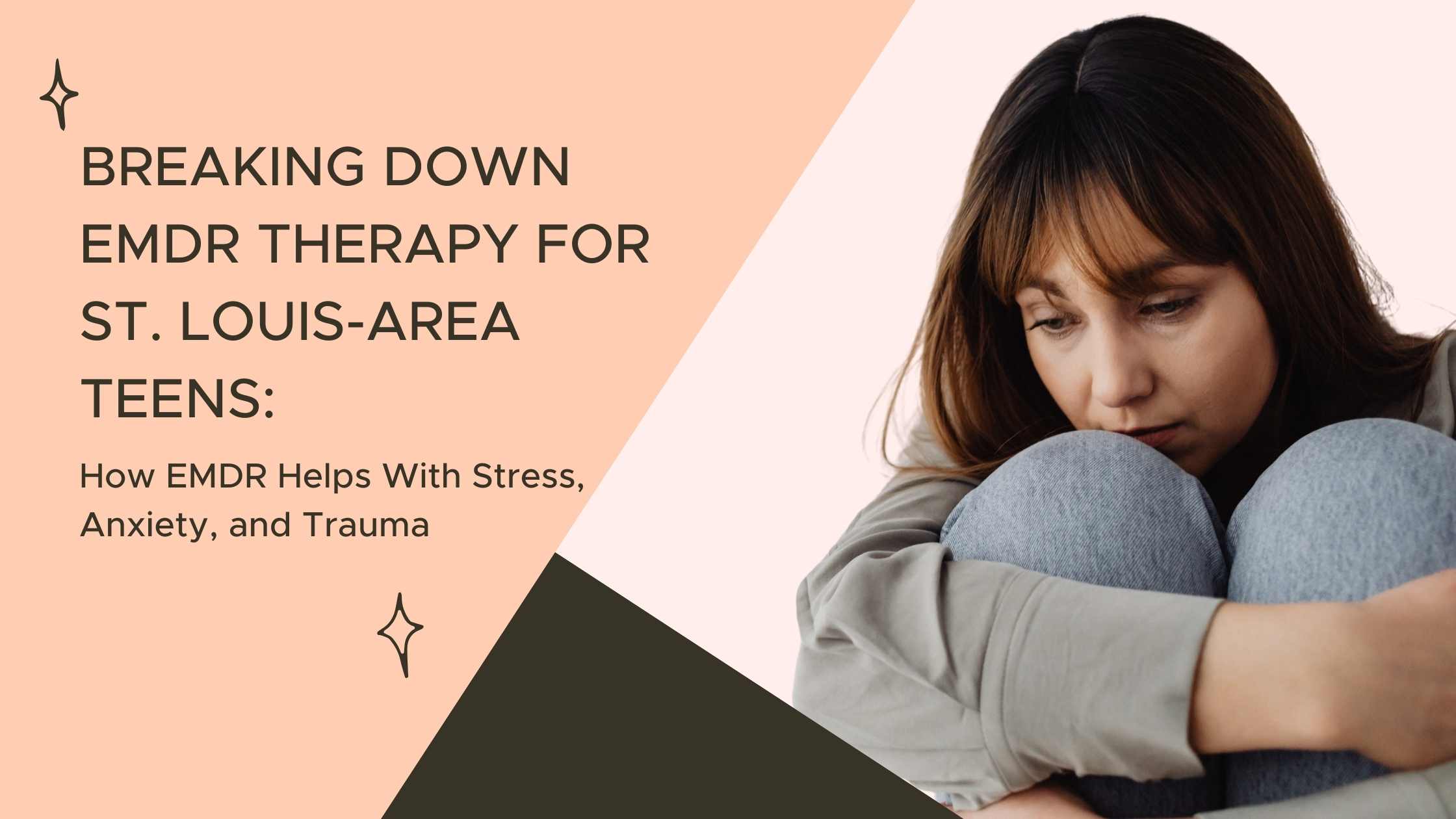
Trauma Therapy and PTSD Treatment
You Feel Like a Different Person
The past lingers in ways you never expected: nightmares, flashbacks, and a constant unease. It makes it hard to feel safe, even when nothing is wrong. Your mind replays moments you wish to forget. You might avoid places and people that remind you of what happened. It’s exhausting, overwhelming, and at times, isolating. You’ve tried pushing through, telling yourself to “just move on,” but it’s not that simple. Trauma changes you, but healing is possible.
Why Starting Trauma Therapy Can Feel So Hard
You’ve thought about getting help, but something holds you back. Maybe you’ve convinced yourself that what happened “wasn’t that bad” or that you should be able to handle it on your own. Perhaps the idea of revisiting the pain feels too overwhelming. Plus, you’re not sure if therapy can actually help. You might even worry about what others will think—or how much energy you have left to give. These feelings are completely normal. Trauma can make trust and vulnerability feel complicated. We know taking that first step toward help is daunting. But starting therapy doesn’t mean you have to do it all at once—it just means you don’t have to do it alone anymore.
The Many Faces of Trauma
Trauma looks different for everyone.
It can stem from a single event, like an accident or a natural disaster. Trauma can come from ongoing experiences, such as childhood neglect or an abusive relationship.
Trauma can also result from situations where you weren’t directly involved but were deeply impacted. For example, witnessing violence or supporting someone through their own trauma.
Some of the most common types of trauma include:

- Acute Trauma: A single, overwhelming event, such as a car accident, assault, or a sudden loss.
- Chronic Trauma: Repeated exposure to distressing situations. E.g. long-term abuse, bullying, or living in a war zone.
- Complex Trauma: The result of multiple, prolonged traumatic experiences. These often begin in childhood and deeply affect emotional development and relationships.
- Secondary, or Vicarious, Trauma: The stress and emotional pain of witnessing or hearing about another’s traumatic experiences. Vicarious trauma is often experienced by caregivers, first responders, or loved ones.
Trauma doesn’t fit neatly into categories—it’s deeply personal, shaped by how your mind and body respond. No matter what kind of trauma you’ve experienced, your pain is valid, and support is available.
The Symptoms of Trauma Can Be Overwhelming and Varied
Trauma doesn’t just live in your memories—it affects your emotions, body, and mind. Whether your trauma happened recently or years ago, its impact can show up in many ways.
If the trauma is recent, you might experience:
- Emotional Symptoms: Intense fear, anger, sadness, or feelings of helplessness.
- Physical Symptoms: A racing heart, sweating, nausea, trouble sleeping, or feeling physically tense.
- Mental Symptoms: Difficulty concentrating, intrusive thoughts about what happened, or replaying the event in your mind.
If the trauma happened a long time ago, the symptoms can feel different but no less real:
- Emotional Symptoms: A sense of numbness, chronic irritability, or unexpected emotional outbursts.
- Physical Symptoms: Chronic pain, fatigue, headaches, or other stress-related health issues.
- Mental Symptoms: Trouble trusting others, persistent self-doubt, or feeling disconnected from your life or identity.
Whether trauma is fresh or deeply rooted, it can also lead to unproductive behaviors. These can include avoiding people or situations, relying on unhealthy coping mechanisms, or feeling stuck in a cycle of fear and anxiety. These reactions are NOT signs of weakness—they’re how your body and mind have tried to protect you. Therapy can help you move toward understanding and healing.
Trauma and PTSD: What’s the Difference?

While trauma and PTSD (Post-Traumatic Stress Disorder) are related, they’re not the same thing.
Trauma refers to the emotional and physical responses to a deeply distressing or disturbing event.
Everyone processes trauma differently, and not everyone who experiences trauma will develop PTSD.
PTSD, on the other hand, is a diagnosable mental health condition that can develop when trauma overwhelms the brain’s ability to process and heal.
Symptoms of PTSD include:
- Intrusive Memories or Flashbacks: These can feel like the trauma is happening all over again, often triggered by specific sounds, smells, or situations.
- Avoidance: A strong urge to avoid anything that reminds you of the trauma—places, people, conversations, or even certain thoughts or feelings.
- Hypervigilance: Feeling constantly on edge, as if danger is always around the corner. This can lead to difficulty relaxing, trouble sleeping, and being startled easily.
- Negative Changes in Mood or Thinking: Persistent feelings of guilt, shame, or hopelessness, or struggling to feel joy or connection with others.
- Physical Symptoms: Headaches, muscle tension, and stomach issues tied to chronic stress.
Both trauma and PTSD are your brain and body’s way of protecting you from harm. If these symptoms resonate, it’s important to know you don’t have to endure them alone—healing is possible.
Why Therapy is Helpful for Trauma Recovery
Trauma has a way of making you feel stuck—like you’re reliving the past or unable to move forward. Therapy creates a safe, supportive space to begin untangling those experiences. A trained therapist helps you process what happened at your own pace, guiding you to understand your emotions and responses without judgment.
Therapy isn’t about “fixing” you—it’s about giving you tools to rebuild a sense of safety, control, and hope. It can also help you make connections between your trauma and current struggles, like difficulty in relationships or constant anxiety. With the right support, you can create a path toward healing that feels achievable and meaningful.
What to Expect from Trauma Therapy at Marble Wellness
Starting trauma therapy can feel like stepping into the unknown, but at Marble Wellness, we prioritize creating a space where you feel safe and supported. In your first sessions, we’ll focus on understanding your unique experiences and building a foundation of trust. Your therapist will work with you to establish goals and create a plan that feels manageable, not overwhelming.
Our approaches to trauma therapy are tailored to your needs and may include several evidence-based methods:
Cognitive Behavioral Therapy (CBT)
This approach helps you identify and challenge negative thought patterns stemming from your trauma. By learning healthier ways of thinking, you can reduce emotional distress and gain a sense of control over your reactions.
Eye Movement Desensitization and Reprocessing (EMDR)
A powerful tool for trauma recovery, EMDR uses guided eye movements to help reprocess traumatic memories, reducing their emotional intensity and helping you integrate them in a way that feels less overwhelming.
Mindfulness Practices
Trauma often pulls you into the past or propels you into future anxieties. Mindfulness techniques help ground you in the present, teaching you how to focus on safety and calm in the here and now.
Somatic Techniques
Trauma doesn’t just live in your mind—it resides in your body as well. Somatic approaches, such as breathwork or body awareness exercises, help release tension stored in the body and build a sense of physical and emotional safety.
Each of these methods can be adapted to your comfort level and specific needs, ensuring that your healing journey is uniquely your own. Importantly, you set the pace—we’ll never rush you into conversations or exercises you’re not ready for.
Understanding How Trauma Therapy Helps
Trauma therapy is more than just discussing the past. It focuses on changing how your mind and body react to past events. This change can help you regain control of your life. If you feel stuck in a cycle of fear, shame, or self-blame, therapy offers a way forward.
The Benefits of Trauma Therapy and PTSD Treatment
Once you are in a safe and supportive environment to work through your trauma, you may notice that the overwhelming symptoms that once controlled your life start to fade. The benefits include:
- Flashbacks that lose their power
- Nightmares that occur less often
- Reduced hypervigilance, leading to moments of peace
Therapy helps reduce the emotional intensity of traumatic memories, so they no longer feel like they’re happening right now.
Changing Your Self-Perception
Many people in trauma therapy find that their negative self-perceptions start to soften. Feelings of guilt, shame, or “I should have done something differently” often transform into:
- Understanding
- Self-compassion
You’ll learn to see your responses as survival strategies rather than personal failures. As shame fades, a sense of pride and strength can take its place. You survived, and now you’re taking steps to heal.
Opening the Door to Positive Emotions
Trauma therapy also opens the door to positive emotions that may have felt out of reach. Instead of numbness, joy begins to emerge. Instead of distrust, you may find it easier to form meaningful connections. Over time, you may notice:
- Hope for the future instead of dread
- More frequent laughter
- An increased sense of calm
Regaining Control Over Your Life
Beyond emotional healing, trauma therapy helps you regain control over your life. You will gain tools to:
- Manage triggers
- Cope with stress
- Navigate relationships
Therapy equips you to approach challenges with resilience rather than feeling overwhelmed. This empowerment can spread to every area of your life—from work to friendships to family.
Rewriting Your Story
Most importantly, trauma therapy helps you rewrite your story. Instead of being defined by the pain of what happened, you’ll start to define yourself by:
- Your strength
- Your growth
- Your ability to heal
The fear of starting therapy is natural, but the process offers something invaluable: freedom from the weight of the past and the chance to live fully in the present.
You don’t have to “fix” yourself before starting therapy, and you don’t have to do this alone. Healing is possible, and we’re here to guide you every step of the way.
Life After Healing Trauma & PTSD

Healing from trauma doesn’t mean forgetting what happened—it means reclaiming your life from its grip. As you heal, you may notice a profound shift in how you feel about yourself and the world around you. Peace replaces constant tension. Joy becomes something you can experience, not just watch from the sidelines. You may find your relationships improve, built on trust and connection rather than fear or defensiveness. Sleep comes more easily. Your mind feels clearer, no longer weighed down by intrusive memories.
Most importantly, you begin to feel like yourself again. Strong, whole, and capable of facing life with resilience and confidence. Healing is a journey. On the other side is a life where you are no longer defined by what happened to you, but by the strength and growth you’ve discovered along the way.
Why Choose Marble Wellness for Trauma Therapy and PTSD Treatment?
At Marble Wellness, we understand that trauma is deeply personal. True healing requires compassionate, expert support. Our team of skilled therapists has specialized training in trauma-focused approaches, including EMDR therapy and mindfulness-based interventions. We are committed to walking with you through every step of your healing journey, offering empathetic and expert care.
Our serene and welcoming environment is designed to help you feel at ease. From the moment you walk through our doors, you’ll know you’re in a place where your pain is valid, your story matters, and your progress is celebrated.
Learn more about how Trauma Therapy or PTSD Treatment can help you take back your life. Our St. Louis Trauma Therapists are ready to help with your healing journey!
Our blogs offer some additional insight, tips, and tools for those healing from trauma. They also talk about ways therapy can help, so you can feel more comfortable and confident to get started today.
Begin Trauma Therapy or PTSD Treatment in St. Louis, MO
When considering trauma therapy or PTSD treatment, taking this first step forward is huge. In our Ballwin, MO counseling clinic, we can help you feel better faster. We can also chat via telehealth for online therapy in Missouri. Truly, anywhere in the state! Taking this first step is a big deal, so you are already making great progress! Just follow these simple steps and we will get started.

1. Reach out to Marble Wellness
A member of our professional Admin Team will be your first point of contact. She’ll get you set up with the best therapist for your needs and talk first appointment details.

2. Meet with one of our Trauma Therapists
We have members of our team who are trained in and skilled at trauma therapy and PTSD treatment. They will work with you to personalize a plan to feel better.

3. Feel more fully yourself, comfortably
Whether it’s in-person, online, or walk-and-talk therapy in the park, you and your therapist will use their skills and your strengths to help you start to live a happy, fulfilling life.
Other Mental Health Services at Marble Wellness
At Marble Wellness, our goal is simple: Counseling services designed to help set you on a path of living a more fulfilled, calm, and happy life. We specialize in anxiety, depression, grief, chronic illness, therapy for men, couples, and maternal overwhelm. Our expert therapists can also help new moms with various postpartum concerns, moms in the thick of parenting, and moms with teens. We can also chat from wherever you are in the state with online therapy in Missouri. No matter where you are in your journey, we would love to support you.
Have Questions About Starting Therapy?
Taking this step is a big deal, so you are already making great progress! We are here to help answer your questions and move forward.




